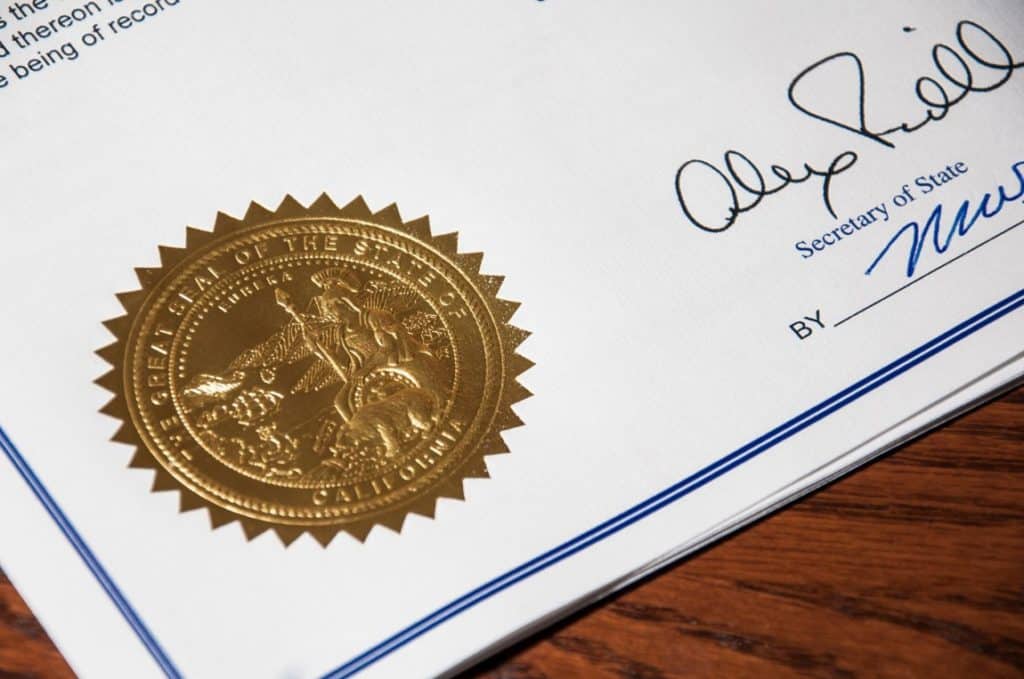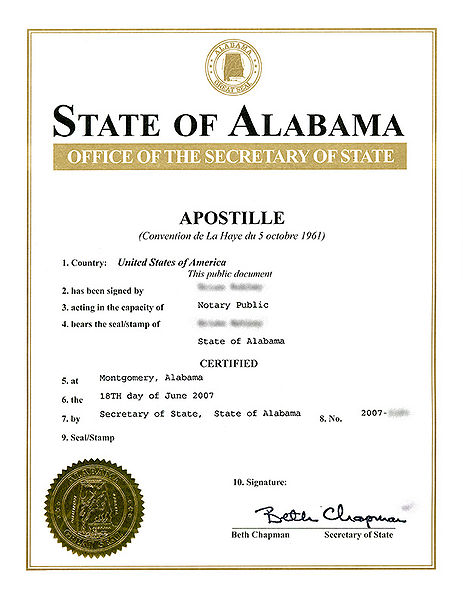Understanding the Apostille Process: A Comprehensive Guide to International Record Authentication
Navigating the elaborate landscape of international file authentication can be daunting without a clear understanding of the apostille process. What precisely specifies an apostille, and why is it so critical for records predestined for Hague Convention nations?
What Is an Apostille?
An apostille is a main accreditation that confirms the authenticity of a document for usage in an additional nation. This accreditation, issued by a designated authority in the nation where the paper came from, guarantees that the file is recognized as legitimate and legit in the worldwide arena. The process of getting an apostille includes several actions, consisting of the verification of the document's trademarks, seals, and stamps by proper governmental bodies.
The apostille functions as an internationally identified type of authentication, implemented by the Hague Convention of 1961. This treaty, officially known as the Hague Convention Eliminating the Requirement of Legalisation for Foreign Public Records, systematizes the process of record accreditation amongst participant countries. The apostille itself is a standard certificate which contains certain information, such as the releasing authority, the country of beginning, and the date of issuance.
It is necessary to note that not all documents are eligible for an apostille. Typically, public records like copyright, marital relationship licenses, court orders, and academic diplomas get approved for this qualification. Private files, such as contracts and contracts, might require registration and extra steps to qualify.
Importance of Apostille
Comprehending what an apostille is establishes the stage for valuing its significance in worldwide ventures. houston tx apostille. An apostille, essentially a kind of accreditation released by a designated authority, verifies the credibility of a file for use in international countries that are notaries to the Hague Apostille Convention. This standard procedure eliminates the requirement for more legalization by embassies or consular offices, therefore streamlining worldwide deals
It makes certain the credibility and approval of essential documents-- such as copyright, marital relationship licenses, and instructional diplomas-- throughout boundaries. For services, it assists in the smooth conduct of worldwide trade, mergers, and acquisitions by providing a trusted approach of record confirmation.
Additionally, an apostille improves lawful security and conformity. Federal governments and organizations can with confidence rely on the credibility of papers bearing an apostille, minimizing the risk of fraudulence and misstatement.
Records That Call For Apostille
When involving in global transactions or lawful issues, certain documents commonly require the authentication supplied by an apostille. This guarantees their recognition and acceptance in countries that are signatures to the Hague Apostille Convention. Typically, personal papers such as birth certifications, marital relationship certificates, and fatality certificates need an apostille, particularly when they are used for procedures like migration, marriage abroad, or worldwide probate issues.
Educational documents are an additional classification often find more calling for apostilles. Diplomas, transcripts, and scholastic records often require this verification for purposes such as pursuing more education and learning, employment, or expert licensing in a foreign country (houston tx apostille). This action assures that the documents are identified as legit and valid
Lawful papers, consisting of go to my site powers of lawyer, testimonies, and court orders, additionally generally demand apostilles. Business papers such as certificates of incorporation, bylaws, and commercial agreements might call for an apostille to promote global profession, establish foreign branches, or participate in cross-border legal process.
Actions to Get an Apostille

Getting an apostille entails a multi-step procedure that makes sure the credibility and acceptance of your files in foreign nations. The first action is determining which files need an apostille. houston tx apostille. Usual records consist of copyright, marriage licenses, scholastic records, and corporate documents
When identified, the paper should be licensed by the suitable releasing authority. After accreditation, the document must be submitted to the assigned Competent Authority in the file's country of origin.
The entry procedure usually requires a finished application, the original file, and a charge. Some jurisdictions may offer the alternative of expedited processing for an added cost. Upon successful verification, the Competent Authority will certainly affix the apostille certification to the record, consequently confirming its authenticity.
Common Challenges and Solutions
Browsing the apostille procedure can offer a number of common obstacles that, if not effectively resolved, might postpone or complicate file authentication. One constant concern is the entry of inaccurate or incomplete files. Each nation has particular requirements for the sorts of documents that can be apostilled, and any kind of deviation from these can result in denial. Guaranteeing that all papers are exact and full prior to entry is critical.
An additional typical obstacle is understanding the varied processing times. Handling times can vary significantly in between nations and also in between various regions within the very same nation. It is crucial to account for these variations when preparing the apostille procedure to stay clear of unanticipated hold-ups.
In addition, language obstacles can pose considerable barriers. Files in a foreign language frequently need certified translations, and visit their website any type of errors in translation can lead to additional issues. Involving an expert translation solution can reduce this threat.

Conclusion
Grasping the apostille procedure substantially enhances the effectiveness of worldwide record authentication. By comprehending the need of determining and certifying required records, and navigating the submission to the Competent Authority, the process comes to be more manageable. Awareness of usual obstacles, such as incomplete entries and language obstacles, better help in stopping possible delays. Guaranteeing records are properly apostilled facilitates their approval in Hague Convention signatory nations, thus sustaining seamless worldwide legal and management procedures.